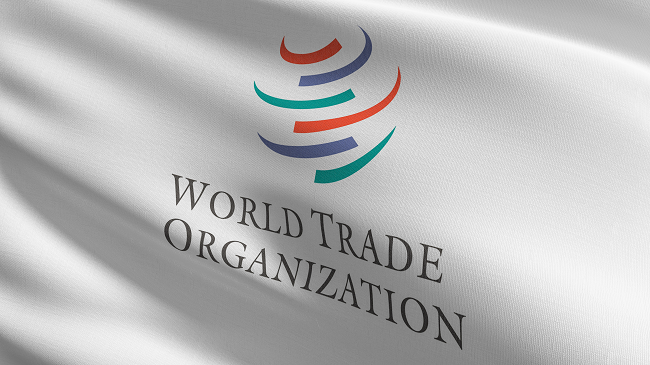
The European Union said it was looking into suspending ‘Most Favoured Nation’ (MFN) treatment for Russia at the World Trade Organization over the country’s invasion of Ukraine.
This would allow the EU to hike tariffs or set quotas on Russian imports.
The 'Most Favoured Nation' principle means that WTO members cannot discriminate between their trading partners and must, with a few exceptions, offer access to their market on the same terms for all other WTO members.
“We are discussing options available to us in the WTO context. This includes the possibility of removing MFN treatment to Russia on the basis of the WTO national security exception,” a European Commission spokesperson said on Thursday (3 March), reports Reuters.
Trade representatives from EU countries are due to discuss options in Brussels today (Friday 4 March).
Canada suspends MFN
The FT reports that Canada has become the first country besides Ukraine to remove MFN status for Russia, imposing tariffs on most Russian imports.
Canada has used the security exemption in WTO regulations. The country, which imported C$1.2bn of goods from Russia in 2020, has already banned crude oil imports from Russia.
Europe response
Excluding bilateral trade agreements, the EU on average applied tariffs of 5.1% on imports from WTO members in 2019, according to WTO data, with higher rates for agricultural products than for industrial goods.
EU imports from Russia were worth €95.3bn in 2020, according to the European Commission. About 70% was made up of oil and gas, with much of the remainder comprising agriculture and raw materials, chemicals, iron and steel.
Are sanctions effective?
According to the Wall Street Journal, sanctions have a patchy record in delivering change.
While sanctions on Iran helped bring about the 2015 deal on its nuclear programme and brought its leaders back to the negotiating table, they didn’t dislodge the government or stop what the US sees as aggressive military behaviour in the Middle East, according to the WSJ.
Sanctions have also failed to make North Korea give up its nuclear weapons.
The WSJ concludes that sanctions on Russia will likely have the biggest impact on the global economy of any such moves since 1945, because it is a far bigger economy than recent targets, accounting for 10% of global oil supplies and – together with Ukraine – a quarter of global grains trade.
UK sanctions so far
Russian banks, businesses and individuals have had their assets frozen, and banks have been thrown off the Swift system that facilitates global payments, reports the BBC.
Other sanctions have included banning Russian airlines and vessels from British airports and ports, travel bans, and curbs on exports of dual use items that could have military purposes.
As previously covered in the IOE&IT’s Daily Update, UK firms are being warned to batten down the hatches and prepare for economic fallout from Russia’s invasion of Ukraine.
Energy prices are predicted to rise, along with raw material costs including foodstuffs, and metals such as titanium, cobalt, nickel, and lithium.
The head of the London Metal Exchange, Matthew Chamberlain, told the BBC’s Today programme that the surging cost of metals amid the Ukraine conflict means UK shoppers are likely to face higher prices for canned goods.
One economist warned inflation, which tracks the cost of living, may hit 10%.



